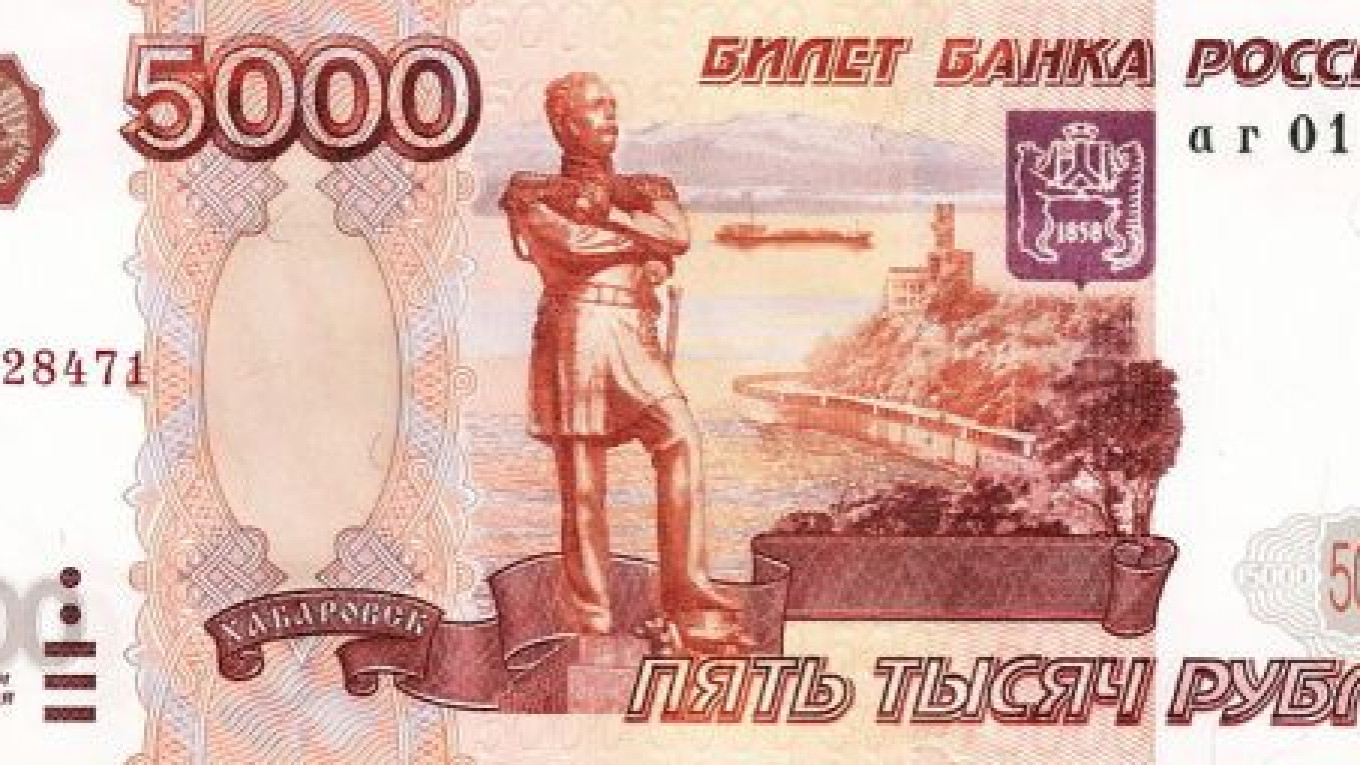The Interior Ministry has detained a group of seven individuals believed to be responsible for laundering more than $1.1 billion over five years using several commercial banks and over 100 Russian and foreign firms.
In a statement released Monday, the ministry said investigators had conducted 85 searches that revealed an operation involving 400 people. ?
No additional information regarding the individuals, firms or banks in question was given, and the ministry had no further comment when reached by phone.
The only available detail was that the group was headed by a 42-year-old native of the town of Mytishchi in the Moscow region.
The video accompanying the statement showed the office of an unidentified bank with several metal safes full of cash totaling $30 million, registration papers for multiple legal entities and more than 500 stamps.
Money laundering was recently identified as one of the main problems facing the Russian economy by the Central Bank's former chairman, Sergei Ignatyev, who said that more than half of the $49 billion in illegal capital flight last year was controlled "by one well-organized group of individuals," a group which he declined to name.
Ignatyev, who was replaced in June by former Economic Adviser to the President Elvira Nabiullina, told Vedomosti in February that money laundering, which he attributed to bribes, kickbacks, illegal imports, tax evasion and drug trade, amounted to 2.5 percent of Russia's gross domestic product in 2012.
The government has recognized the scale of the problem; President Vladimir Putin signed amendments to money-laundering legislation at the end of June that brought Russia's laws into accordance with the standards of the Financial Action Task Force on Money Laundering.
A Russian, Vladimir Nechayev, has been appointed the FATF President, with his one-year term beginning on July 1st.
Russia's active battle against money laundering was prompted by ongoing concern with diminishing budget revenues, something that could jeopardize the fulfillment of Putin's campaign pledges.
According to the former Central Bank chief, the government loses up to $20 billion a year from tax evasion, and 11 percent of businesses pay no tax at all.
Many experts have said these corrupt schemes could not operate without protection from high-ranking government officials.
Pavel Usanov, head of the Hayek Institute for Economy and Law in St. Petersburg, said high-ranking officials were pressured to seek further sources of income for the government's coffers, and putting Russia's shadow economy into the light was seen to be one of the obvious options to do that.
"There are two interests here — one is internal fighting within higher echelons of the Russian elite, and another is the desire to get more tax revenue," Usanov said.
Usanov also raised several questions about the Interior Ministry's large-scale detention.
"It seems they just want to show how much they worked and thus improve their statistical results: that they've conducted 85 searches and uncovered the involvement of 400 people," he said.
At the same time, money-laundering accusations have often been criticized for being politically driven.
One of the six criminal cases against prominent opposition whistleblower Alexei Navalny involves charges of money-laundering and defrauding a transportation company of $1.8 million.
Contact the author at i.nechepurenko@imedia.ru
A Message from The Moscow Times:
Dear readers,
We are facing unprecedented challenges. Russia's Prosecutor General's Office has designated The Moscow Times as an "undesirable" organization, criminalizing our work and putting our staff at risk of prosecution. This follows our earlier unjust labeling as a "foreign agent."
These actions are direct attempts to silence independent journalism in Russia. The authorities claim our work "discredits the decisions of the Russian leadership." We see things differently: we strive to provide accurate, unbiased reporting on Russia.
We, the journalists of The Moscow Times, refuse to be silenced. But to continue our work, we need your help.
Your support, no matter how small, makes a world of difference. If you can, please support us monthly starting from just $2. It's quick to set up, and every contribution makes a significant impact.
By supporting The Moscow Times, you're defending open, independent journalism in the face of repression. Thank you for standing with us.
Remind me later.


